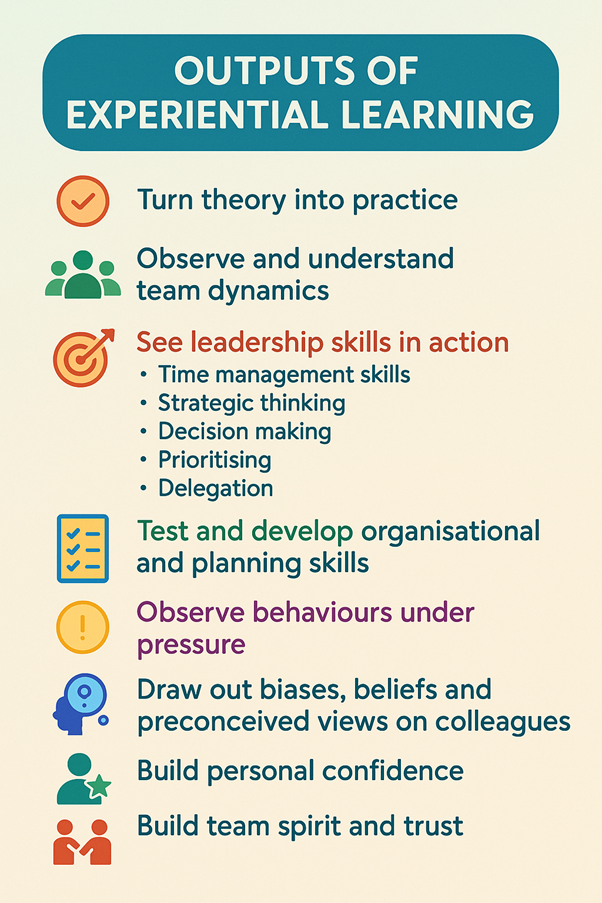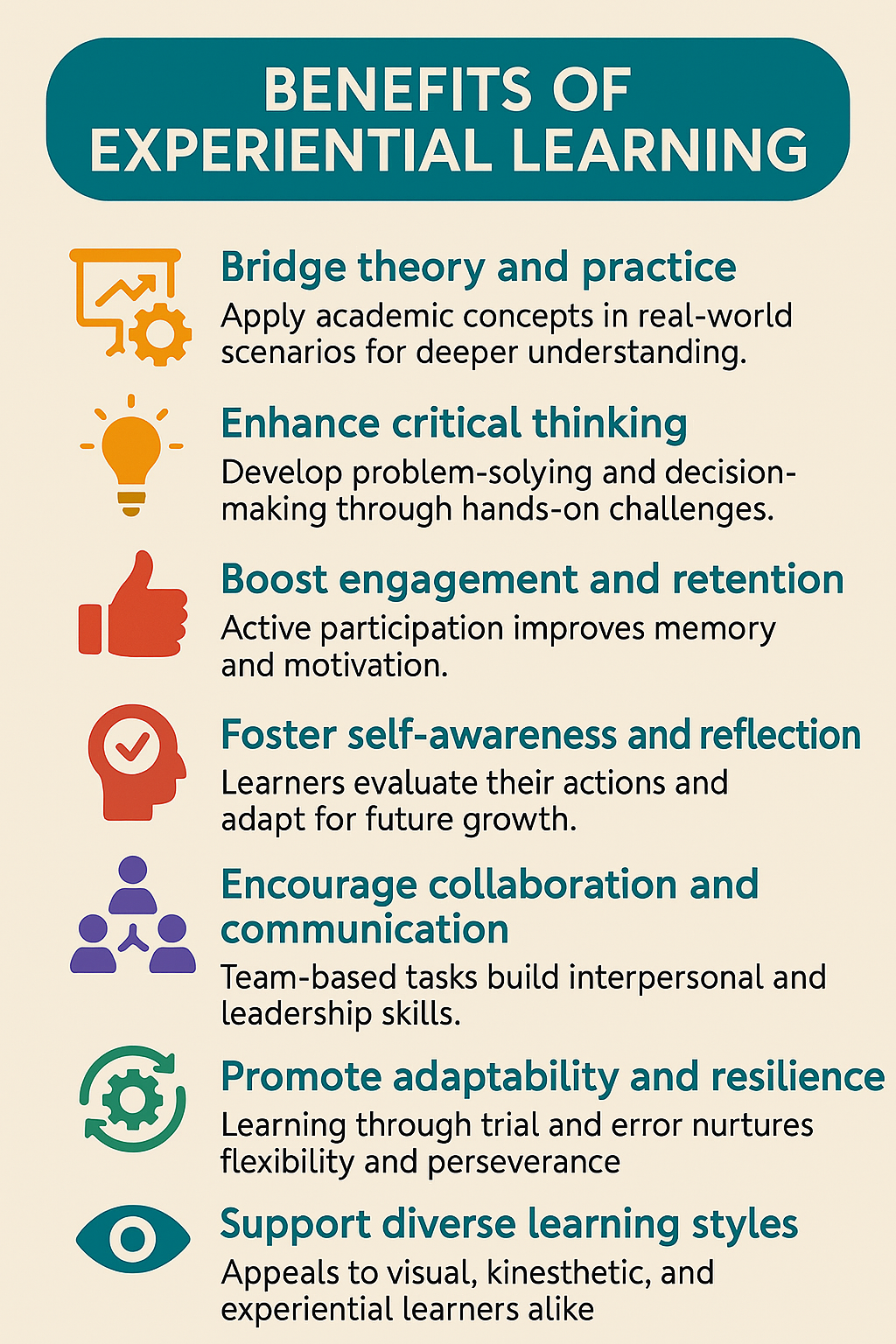Experiential Learning
Why is Experiential Learning Important Now?
In a world where remote working has become the norm, with communication often limited to emails, texts, or WhatsApp groups, and meetings are held over Zoom, we strive to restore a sense of belonging, engagement, and team-building.
We achieve this by offering innovative learning and development solutions through our diverse range of Experiential Learning activities.
What is Experiential Learning?
Experiential learning is a process through which participants develop knowledge, skills, and values from direct experiences outside a traditional classroom setting.
Unlike conventional learning methods that rely heavily on theoretical study, experiential learning emphasises active participation and reflection.
Our approach explores the characteristic that make High Performing Teams, and then test these out by immersing learners in activities that require critical thinking, problem-solving, teamwork, and hands-on involvement, thereby fostering a deeper understanding of self and team.
What are the benefits of Experiential Learning?
Experiential learning offers numerous advantages to participants. It enhances engagement and motivation by involving learners actively in the learning process, making the experience both enjoyable and memorable. This method encourages the development of practical skills that can be directly applied in real-world situations, thereby improving competency and confidence.
Another significant benefit is the improvement of critical thinking and problem-solving abilities. By facing real-life challenges, learners are compelled to think on their feet and devise creative solutions, which sharpens their analytical skills. Moreover, since many experiential learning activities require collaboration, they also enhance teamwork, communication, and leadership skills. Participants learn to trust and rely on each other, fostering a sense of camaraderie and collective achievement.
Overall, experiential learning not only equips individuals with valuable skills and knowledge but also promotes a growth mindset and a positive attitude towards continuous learning and self-improvement.
Outcomes of Experiential Learning?

To find out more about the benefits and outputs of Experiential Leaning
Click the button below


Want to take your Teams to the next level, try Experiential Learning
Please email, call or click and complete the contact form and we will be happy to discuss your specific needs









